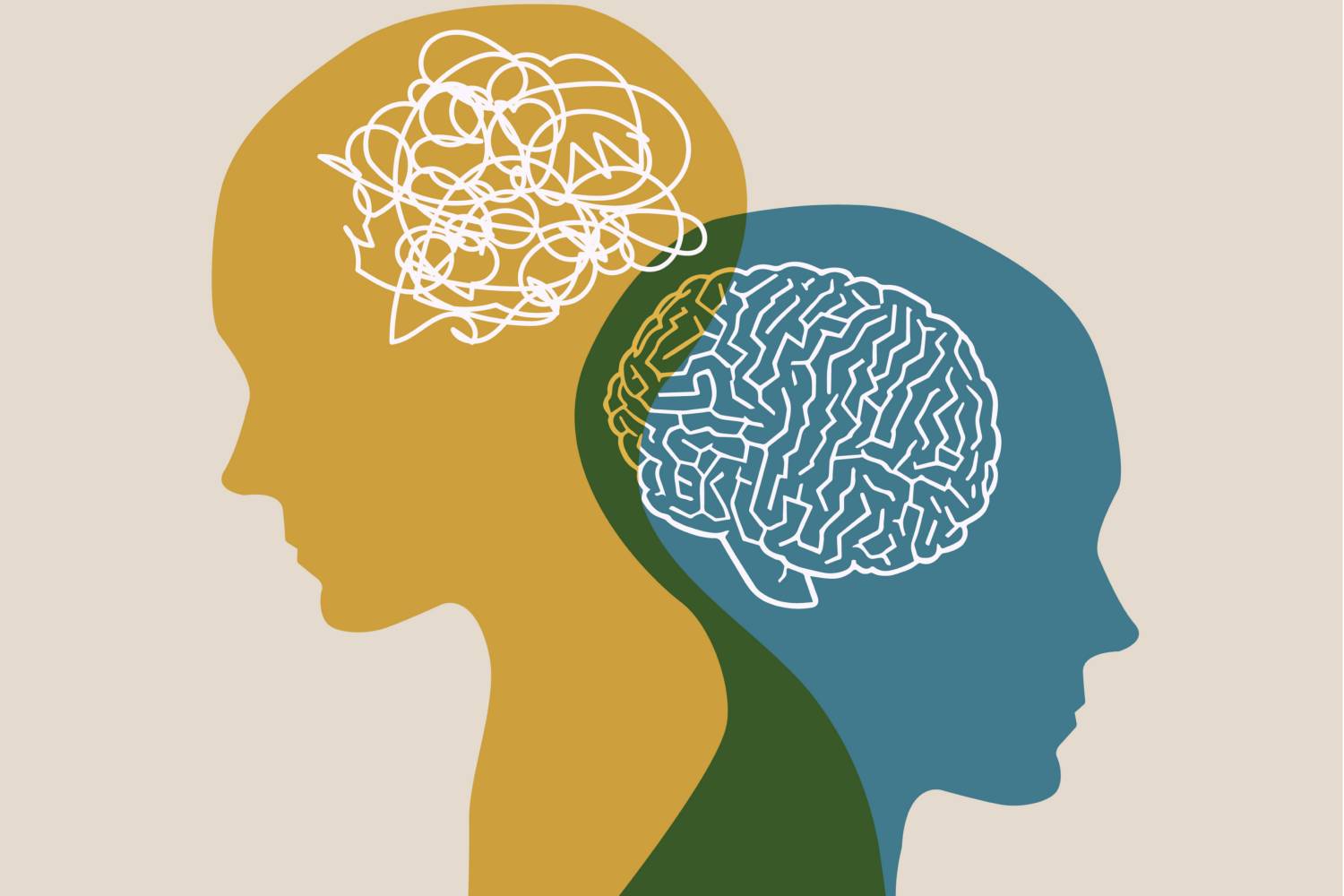Navigating the twists and turns of life can often seem overwhelming, and even more so when faced with the added complexities of mental health and substance abuse. If you’re here, reading this, please remember you’re not alone. Your strength and courage are already evident.
A dual diagnosis intertwines two major life challenges. Yet, it’s a situation that’s far more common than you might think. This journey can be particularly arduous, but understanding its nature and impact is the first step toward healing.
At the intersection of mental health and substance use disorders, dual diagnosis highlights the deep-rooted connections between our minds and our choices. This vital topic carries significant weight, not just for those directly affected but for everyone who touches their lives.
What Is a Dual Diagnosis?
A dual diagnosis, also referred to as a comorbidity or co-occurring disorder, occurs when a person experiences a mental health disorder and a substance use disorder simultaneously.
A dual diagnosis can involve a range of mental health disorders, such as anxiety disorders or bipolar disorder, and a variety of substance use disorders, like alcohol or drug abuse.
The coexistence of these conditions is not unusual. According to a 2018 National Survey on Drug Use and Health, over 9.2 million U.S. adults experienced mental health and substance use disorders that year. You’re not alone. There are many others sharing this challenging journey, and together, progress and healing become more attainable.
What Diagnoses Could Be Part of a Dual Diagnosis?
When it comes to a dual diagnosis, the co-occurring mental health conditions can vary. They may range from anxiety disorders, personality disorders, bipolar disorder, schizophrenia, and post-traumatic stress disorder (PTSD) to attention-deficit disorders.
Each of these can considerably impact a person’s quality of life, and when coupled with substance use disorders, the effects can be compounded.
Along with a mental health disorder, those experiencing a dual diagnosis also struggle with substance use disorders, which involve recurrent use of alcohol or drugs causing significant clinical and functional impairment. This could be reflected in health problems, disability, and failure to meet responsibilities at work, school, or home.
Specifically, these disorders can relate to alcohol use disorder, drug abuse — with a particular emphasis on opioids and other substances — and practices of self-medication.
As we delve into these disorders, it’s vital to approach this conversation with understanding and empathy. Approach this learning without judgment, and remember, mental illness and addiction are not a cause for shame.
In fact, gaining a deeper understanding of these conditions can empower you. Each new insight you gain is a significant step on the path to healing.
What Can Cause a Dual Diagnosis?
The interplay between mental health problems and substance use disorders can be influenced by various factors, including risk factors such as periods of heightened stress, trauma, and genetic factors. Each individual’s journey is unique, and no single path leads to a dual diagnosis.
In the landscape of the mind, periods of extreme stress or trauma can amplify the likelihood of both mental health disorders and substance use disorders coinciding. When life’s trials press heavily, some individuals may find themselves turning to substances as a way of coping, unintentionally paving the way toward a dual diagnosis.
Genetic factors also contribute to the complex tapestry of dual diagnosis. Just as hair color or height can be inherited, so can predispositions to certain mental health conditions and tendencies toward substance abuse. Understanding this can help to unravel feelings of blame or guilt that you may carry.
Substance abuse can also heighten the symptoms of mental health issues and vice versa. This reciprocal relationship exists because both conditions often serve as coping mechanisms for the other.
A person experiencing heightened anxiety, for example, might resort to alcohol or drugs to mitigate their feelings of unease. In turn, the substance use could exacerbate the symptoms of their anxiety, creating a cyclical and challenging situation to navigate.
How Is a Dual Diagnosis Diagnosed?
When faced with the complex situation of a dual diagnosis, it’s important to know that you’re not alone. Seeking help from professionals is an act of courage and self-care, and there are many resources and specialists ready to guide you on your recovery journey.
Healthcare professionals, clinicians, and psychiatrists play an integral role in the diagnosis process. These experts in mental health and substance use disorders are equipped to provide a comprehensive diagnosis, often employing resources like the Diagnostic and Statistical Manual of Mental Disorders (DSM).
Once you have received a dual diagnosis, rather from a professional or through self-diagnoses, seeking support for both the mental health condition and the substance abuse disorder plays a key role in the recovery process.
What Are Dual Diagnosis Treatment Options?
Following a diagnosis, an integrated treatment program is a beacon of hope, guiding you toward recovery. Integrated treatment refers to concurrently addressing mental health and substance use disorders — an approach that holistically considers the unique intricacies of each individual’s situation.
Inpatient and outpatient treatments both have their place, and the choice between them often depends on personal circumstances and the severity of the conditions. While inpatient treatment provides a structured, residential setting, outpatient treatment allows for flexibility, enabling individuals to live at home while attending regular treatment sessions.
The treatment process may encompass medication, psychotherapy, and detoxification. Medication helps manage mental health disorder symptoms and ease withdrawal symptoms, psychotherapy allows for exploring underlying issues and building coping strategies, and detoxification aids in eliminating substances from the body.
Importantly, personalized treatment plans cater to individual needs, histories, and goals, creating a bespoke roadmap that respects each person’s unique journey. With professional guidance, even challenging withdrawal symptoms can be managed effectively, reducing discomfort and aiding in the transition toward improved health.
At Soba New Jersey, dual diagnosis treatment is one of our specialties, and we are committed to individualized care. We understand that the journey to recovery is deeply personal, so our professional team tailors each treatment plan to cater to your unique needs.
When it comes to a dual diagnosis, addressing the root of the issue is key to empowering you to navigate current and future challenges. Our mental health professionals are seasoned in managing various mental health disorders, often accompanying substance abuse issues.
Our center provides a nurturing, secure environment for you to explore your healing process while our experts help navigate the complexities of your condition, offering an array of treatment options from detoxification to psychotherapy. Remember, at SOBA Recovery, your journey to wellness is ours too.
Support Systems and Resources for Dual Diagnosis
As essential as professional help is, the value of support systems in managing dual diagnosis cannot be overstated. These networks of understanding and encouragement often include peer support groups, which provide a safe space to connect with others navigating similar journeys. Such shared experiences can offer both comfort and practical insights.
Beyond support groups, various behavioral health resources and interventions can play a significant role in recovery. These can include educational materials, cognitive-behavioral therapies, and stress management techniques.
At SOBA Recovery, we believe in creating connections that can help foster healing and recovery. We offer both inpatient and outpatient plans, utilizing an array of treatment options that can include cognitive behavioral therapy, peer support, and adventure therapy — which promotes community, engagement, and personal growth.
This combination of one-on-one therapy and group outings into nature allow for new experiences that often works as a catalyst for profound, therapeutic change, aiding in the recovery process while strengthening the bonds within our supportive SOBA community.
Steps To Take If You or a Loved One Has a Dual Diagnosis
When you’re dealing with a dual diagnosis, either personally or in a loved one, the path forward can seem daunting. But by being observant, proactive, and supportive, you can navigate these complexities with grace and courage.
Firstly, recognizing the warning signs is crucial. These could include:
- Noticeable shifts in behavior, mood, or health
- Increased substance use
- Heightened emotional distress
If you notice any such changes, it’s important to seek help, either through a healthcare professional or a peer support group. If a loved one is facing this battle, you can offer support through encouragement, reminding them of their strength and worth.
And remember, the journey doesn’t end at diagnosis or even after initial treatment. Continued care and management are key to long-term recovery, and regular check-ins with health professionals can help maintain progress.
The Bottom Line
Navigating the complexities of dual diagnosis can be challenging, but it’s important to remember that understanding and treating this condition is possible and within reach.
Both mental health and substance use disorders require attention and care, and resources like health professionals, support groups, and comprehensive treatment plans can provide vital support.
At Soba New Jersey, we’re here to walk alongside you on your journey to recovery. We believe that each individual deserves a path to recovery tailored to their unique needs, and our experienced team is equipped to deliver comprehensive, individualized treatment plans.
We prioritize creating a comfortable, safe environment to navigate these complexities with mental health professionals who specialize in the disorders often found in dual-diagnosis cases.
Remember: recovery is possible. Taking the next step requires courage, resilience, and persistence, but you don’t have to take it alone. Reach out to us today, and let us guide you to the healthier, happier life you deserve.
Sources:
Addressing Trauma in Substance Abuse Treatment | NYU





